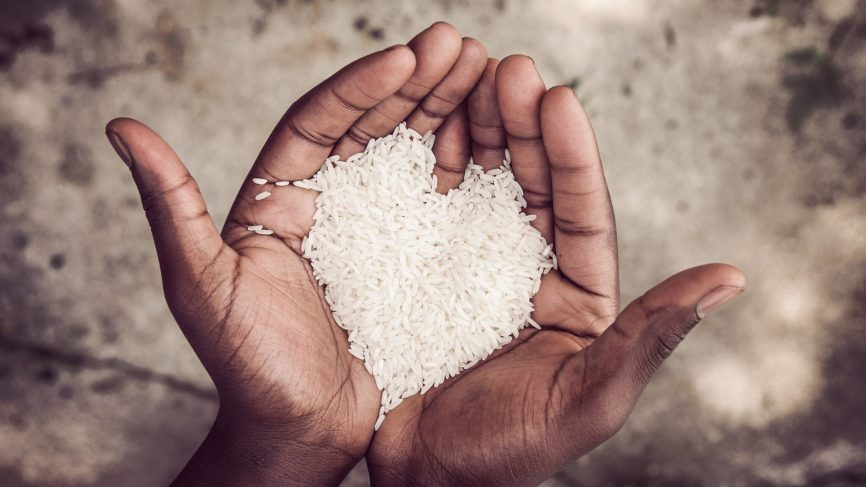Suman Agarwal collaborates with Annam
Today, skinniness has become a vestige of power and wealth, while its voluptuous cousin has been kick-boxed out of fashion. But we live in an India where skinniness is a sign of either wealth, or poverty. The wealthy person’s diet is the poor person’s sustenance. Sadly, lack of access to food for the almost 600 million Indian women is not a fad, but a horrific reality. Almost 33 per cent of women of reproductive age in India are undernourished. Malnourished mothers raise malnourished children. A poor diet during pregnancy can leave a baby vulnerable to infant mortality, diseases, physical retardation, cancer, and reduced brain development and cognitive abilities. It perpetuates a vicious cycle.
According to the UNICEF, every year one million of our children below five die due to malnutrition related causes. 44 per cent of children under the age of five are underweight. 72 per cent of infants have anaemia. The World Bank says that India has one of the world’s highest demographics of children suffering from malnutrition. It’s a silent emergency that pegs our women and children as worse off than even those in Africa and Bangladesh. With 400 million children in our country, is it any wonder that our pavements are full of emaciated children suffering from marasmus?
The reasons for this epidemic are many. Poverty, lack of awareness and illiteracy contribute to this, but the main problem is that most Indians subsist on a diet that is dependent on carbohydrates and fat, with little room for protein. What we need are nutrition interventions through awareness, policy, advocacy and on-ground work led by pro-poor policies. This is where organisations like Annam come in. They provide quality health services to underprivileged children and women in Mumbai, in order to reduce the malnutrition rate and enable nutritional security.
On the advisory board of Annam is Suman Agarwal, a celebrity nutritionist, who is working hard to ensure that underprivileged children receive an adequate diet. At her Tardeo office, she tells me how she’s going about this. Her nutritionists visit slum areas where Annam has a tie-up and give presentations where they sing health songs to guide children, provide them a calorific value of healthy foods like eggs and bananas, and educate them on how they can carry their money forward to convert into nutritional food. “Good nutrition is affordable,” says Agarwal. “You don’t need quinoa and avocado to be healthy. Nutritional foods like bhakri, dal, chana and peanuts come at a good price.”
“For example, most children eat unhealthy food as an evening snack. So, we devised ‘Shakti Bite’, a product that is easily transferable, hygienic, and gives children energy,” she says. It’s really as simple as that.
Besides giving personal and company donations, and writing books on the subject, Agarwal has undertaken other initiatives to further this cause. “If a person from the lower strata comes to me, I guide them on their nutritional requirements. In the future we will set up a free weekly camp at my clinic to guide underprivileged people on how to improve their diet.”
Freedom and identity have taken on different connotations through the centuries, but deep-rooted societal norms are difficult to shrug off. Women in post-Independence India were expected to sacrifice their individuality for the greater good of family and society. Over the years, they traded in their patriarchal protection to find a voice of their own, and skittishly stepped out of their home’s threshold to discover what it was that kept their men away all day. But the veins of sacrifice have not skipped our women. Their self-image is still pegged to patriarchal figureheads. Even today, across most homes in India, the responsibility of nutrition falls squarely on women. Women buy the groceries, women decide what will be eaten, women cook the food, women serve their sons better food than they serve their daughters, and women eat after men, if at all. Gender politics in the kitchen has never been as subversive as it is now.
The way this familial battle is waged makes it a hotspot for female malnutrition and is a deep-rooted cause of dissatisfaction and under-confidence in women. This social practice needs a dire shift.
“Women will carry food for their child, but not for themselves,” Agarwal agrees. “They can improve their health but they need to stop neglecting their body. They must eat on time. They must eat dal, bhakri and vegetables. Chana-murmura will also do. They must have eggs two to three times a week. They must drink milk if they’re pregnant. They lack Vitamin D3 and B12, so we will tie-up with a pathology so women can get free medical tests and we will provide them free medicines.”
While there are many causes dedicated to the empowerment of women, women’s nutrition initiatives need to be mainstreamed through such public delivery programs. The vision must be to eradicate long-term malnutrition and increase access to healthy food for both women and children. Men must be involved in nutrition education. TV must be used to change mindsets since it is a powerful medium. The government must run campaigns where message should be correctly conveyed. The battle for a healthy India must be everyone’s battle.
Meghna Pant is the award-winning author of The Trouble With Women (Juggernaut, 2016), Happy Birthday (Random House, 2013) and One And A Half Wife (Westland, 2012)
Article Source: Vogue

